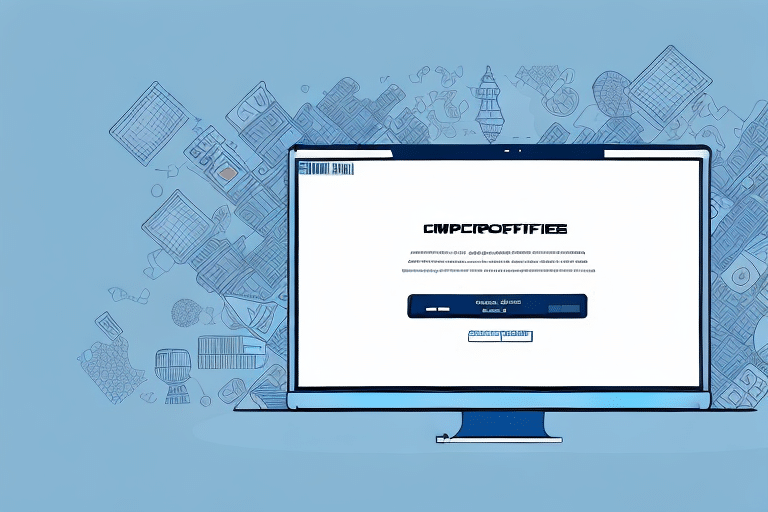Choosing the Right Shipping Fulfillment Software Platform
As eCommerce continues to grow, selecting the appropriate shipping fulfillment software platform has become crucial for running a successful business. The right platform can streamline your shipping processes, minimize errors, and enhance customer satisfaction. With numerous options available, making the right choice can be challenging. This article explores the key factors to consider when selecting a shipping fulfillment software platform.
Understanding the Importance of Shipping Fulfillment Software
Shipping fulfillment software platforms offer businesses a seamless and efficient method to manage their shipping processes. They automate many of the manual tasks associated with shipping, such as tracking orders, managing inventory, and generating shipping labels. This automation reduces errors and increases the speed of order fulfillment.
Moreover, shipping fulfillment software provides valuable insights into shipping operations. By analyzing data like shipping times, delivery rates, and carrier performance, businesses can identify areas for improvement and make data-driven decisions to optimize their shipping processes. According to a Forrester report, businesses using advanced fulfillment software have seen up to a 30% increase in operational efficiency.
Key Factors to Consider When Choosing a Shipping Fulfillment Software
Compatibility
The platform must seamlessly integrate with your existing eCommerce platform, such as Shopify or WooCommerce, ensuring smooth data flow and minimal disruptions.
Scalability
Select a platform that can grow with your business, accommodating increasing order volumes and expanding operational needs without compromising performance.
Reliability
Ensure the platform has a proven track record of maintaining high uptime and minimizing shipping disruptions. Reliable platforms support continuous business operations and uphold customer trust.
Features
Evaluate the platform's features, such as inventory management, shipment tracking, label generation, and integration capabilities. Advanced features can provide a competitive edge and streamline complex operations.
Security
Protecting sensitive customer information is paramount. The platform should offer robust security measures, including data encryption and secure data storage, to safeguard against breaches.
Cost
Assess the platform's pricing structure to ensure it aligns with your budget. Look for transparent pricing models and consider the value offered in relation to the cost.
Customer Support
Reliable customer support is essential for resolving issues promptly. Choose a platform that offers multiple support channels, such as phone, email, and live chat, with a reputation for excellent service.
Benefits of Using a Shipping Fulfillment Software Platform
Increased Efficiency
Automation of manual tasks reduces the time and effort required for shipping processes, leading to higher efficiency and fewer errors.
Better Visibility
Real-time tracking and inventory visibility allow businesses to monitor shipping status and inventory levels, enabling proactive issue resolution.
Improved Customer Service
Faster and more accurate shipping enhances customer satisfaction, leading to repeat business and positive reviews.
Cost Reduction
By minimizing shipping errors and optimizing processes, businesses can reduce operational costs. Additionally, many platforms offer discounted shipping rates through carrier partnerships.
Top Shipping Fulfillment Software Platforms for Small Businesses
Choosing the right platform involves considering factors like pricing, ease of use, and integration capabilities. For instance, ShipStation is favored for its user-friendly interface and flexible pricing, making it ideal for small businesses. ShipBob offers comprehensive solutions including inventory management and order tracking, suitable for growing businesses. Shippo is known for its seamless integration with eCommerce platforms like Shopify and WooCommerce.
Evaluating the Features of a Shipping Fulfillment Software Platform
- Real-time inventory tracking and automated low-stock alerts.
- Shipment tracking that provides customers with real-time updates.
- Automated label generation to eliminate manual printing.
- Integration with eCommerce platforms and other business tools.
- Comprehensive reports and analytics for shipping performance and inventory levels.
Additionally, assess the quality of customer support provided by the software provider. Responsive and knowledgeable support can significantly impact the efficiency of your shipping operations. Ensure the platform can scale with your business growth, handling increasing order volumes without sacrificing performance.
Integrating Your Shipping Fulfillment Software with Other Business Tools
Integration with other business tools can streamline your entire workflow. Follow these tips to ensure a smooth integration process:
- Verify compatibility between the platforms you use.
- Ensure access to technical support during the integration process.
- Create a detailed plan for managing data transfer between platforms.
Thoroughly test the integration before full implementation to identify and resolve potential issues. Additionally, provide training for your team to ensure they are proficient in using the integrated systems, maximizing the benefits of the integration.
Comparing Pricing and Plans of Different Shipping Fulfillment Software Platforms
Pricing is a critical consideration when selecting a shipping fulfillment software platform. Many platforms offer scalable pricing plans that allow businesses to start with basic features and upgrade as they grow. Compare the pricing structures to find a plan that fits your budget and business needs.
Consider the level of customer support included in each pricing tier. Some platforms offer 24/7 support, which can be crucial for businesses operating outside standard hours. Additionally, evaluate the features and integrations included in each plan to ensure you are getting the best value for your investment.
For detailed pricing comparisons, refer to the G2 Shipping and Fulfillment software reviews.
The Role of Customer Support in Choosing a Shipping Fulfillment Software Platform
Effective customer support is essential for resolving issues swiftly and maintaining smooth shipping operations. When evaluating platforms, consider the following:
- Availability of support channels such as phone, email, and live chat.
- Response times and support hours, especially if you operate internationally.
- Quality of support, including the expertise and friendliness of support staff.
Platforms with strong customer support can help you troubleshoot problems quickly, minimizing downtime and ensuring continuous business operations.
Case Studies: Successful Implementations of Shipping Fulfillment Software
XYZ Co. implemented ShipStation to streamline their shipping process, resulting in a 50% reduction in shipping errors and a 25% decrease in shipping time.
ABC Inc. adopted Shippo for managing their shipping processes. This integration allowed ABC Inc. to compare shipping rates efficiently, leading to a 20% reduction in shipping costs.
DEF Corp. utilized ShipBob to automate their shipping process, achieving a 30% reduction in order fulfillment time. This improvement enabled DEF Corp. to handle more orders promptly, enhancing customer satisfaction and increasing revenue.
Future Trends in Shipping and Logistics and Their Impact on Fulfillment Software
The shipping and logistics industry is rapidly evolving with emerging technologies that will shape the future of fulfillment software platforms. Key trends include:
- Integration of artificial intelligence (AI) and machine learning to optimize shipping routes and predict delivery times.
- Increased use of drones and autonomous vehicles for last-mile delivery, enhancing delivery speed and reducing costs.
- Adoption of blockchain technology for enhanced supply chain transparency and security.
Staying abreast of these trends can help businesses leverage advanced features in fulfillment software to maintain a competitive edge.
Best Practices for Training Your Team on a New Shipping Fulfillment Software Platform
Effective training is essential for maximizing the benefits of a new shipping fulfillment software platform. Follow these best practices:
- Provide comprehensive user guides and training materials to ensure all team members understand how to use the platform.
- Conduct group training sessions and hands-on workshops to facilitate practical learning.
- Assign a dedicated support team member to assist with onboarding and address any questions or issues that arise.
Continuous training and support can help your team fully utilize the platform's capabilities, leading to improved efficiency and productivity.
Ensuring Security and Privacy with Shipping Fulfillment Software
Protecting customer data is a top priority when using shipping fulfillment software platforms. To ensure security and privacy:
- Choose platforms that offer data encryption both in transit and at rest.
- Verify that the platform complies with industry standards and regulations, such as GDPR and CCPA.
- Ensure the platform has secure data centers with robust physical and digital security measures.
Implementing these security measures helps safeguard sensitive information and maintains customer trust.
Common Mistakes to Avoid When Choosing a Shipping Fulfillment Software Platform
- Ignoring Scalability: Failing to choose a platform that can grow with your business can lead to operational bottlenecks.
- Choosing Solely on Cost: Selecting the cheapest option without considering features and support can result in higher long-term costs.
- Overlooking Compatibility: Ensuring the platform integrates seamlessly with your existing systems is crucial for smooth operations.
- Neglecting Customer Support: Poor customer support can lead to unresolved issues and disrupted shipping processes.
By avoiding these common mistakes and thoroughly evaluating your options, you can select a shipping fulfillment software platform that aligns with your business needs and supports your growth objectives.
Choosing the right shipping fulfillment software platform is essential for the success of your eCommerce business. By considering compatibility, reliability, scalability, features, security, and cost, you can select the ideal platform for your needs. Additionally, ensuring proper training, integration, and security measures will help you achieve greater efficiency, cost savings, and customer satisfaction.




















